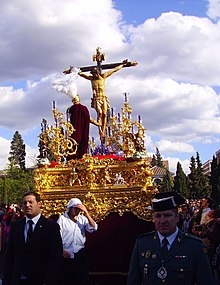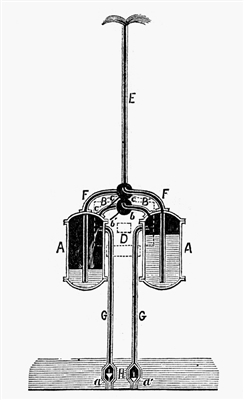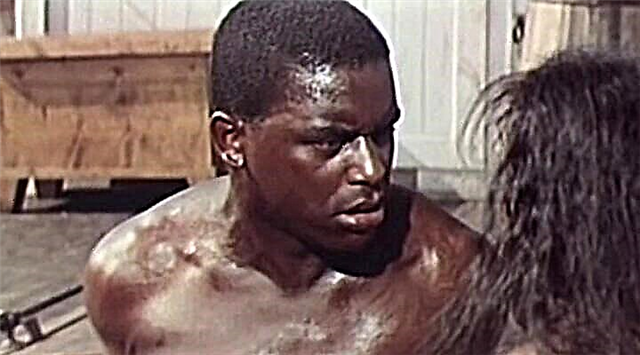The Trojan War began. The Trojan prince Paris seduced and abducted Elena, the wife of the Spartan king Menelaus. The Greeks gathered on them with a huge army, at the head of it stood the Argos king Agamemnon, brother Menelaus and the husband of Clytemnestra - Elena's sister. The army stood in Aulis - on the Greek coast facing Troy. But it could not sail away - the goddess of these places Artemis, huntress and patroness of women in labor, sent calmness or even nasty winds to the Greeks.
Why Artemis did this - they told me differently. Maybe she just wanted to protect Troy, whom her brother Apollo patronized. Perhaps Agamemnon, having fun in his spare time with hunting, struck a doe with one arrow and exclaimed proudly that Artemis herself would not have hit more accurately - and this was an insult to the goddess. Or perhaps a banner happened: two eagles seized and torn to pieces a pregnant hare, and the fortuneteller said: it means - two kings will take Troy, full of treasures, but they cannot escape the wrath of Artemis, the patroness of pregnant women and women in labor. Artemis must be propitiated.
How to appease Artemis - there was only one story about this. The fortuneteller said: the goddess demands a human sacrifice - let the native daughter of Agamemnon and Clytemnestra, the beautiful Iphigenia, be slaughtered on the altar. Human sacrifices in Greece have long been no longer in custom; and such a sacrifice for a father to sacrifice a daughter was a completely unheard-of thing. Nevertheless, a sacrifice was made. Messengers were sent for Iphigenia: let her be brought to the Greek camp, King Agamemnon wants to marry her to the best Greek hero - Achilles. They brought Iphigenia, but instead of the wedding, death awaited her: they tied her up, tied her mouth so that her screams did not interfere with the rite, carried her to the altar, the priest brought a knife over her ... But here the goddess Artemis had mercy: she wrapped the altar in a cloud, threw it under the knife a priest instead of a girl, a sacrificial doe, and Iphigenia carried away through the air to the ends of the earth, in Tauris, and made her her priestess there. Euripides wrote another tragedy about the fate of Iphigenia in Tauris. But none of the Greeks knew what had happened: everyone was sure that Iphigenia had fallen on the altar. And Iphigenia's mother, Clytemnestra, harbored a mortal hatred for Agamemnon, her infanticide husband. How many terrible deeds followed this, later Aeschylus will show in his "Oresteia."
It is about this sacrifice of Iphigenia that Euripides wrote his tragedy. There are three heroes in it: first Agamemnon, then Clytemnestra and, finally, Iphigenia herself. The action begins with a conversation between Agamemnon and his faithful old man, a slave. Night, quiet, calm, but in the heart of Agamemnon there is no peace. Good to the slave: his work is obedience; it’s hard for the king: his business is a decision. The leader’s duty is fighting in it: to lead the army to victory - and the father’s feeling: to save his daughter. First, the leader’s duty was overpowered:
he sent an order to Argos to bring Iphigenia to Aulis - as if for a wedding with Achilles. Now my father’s feeling has overpowered: here is a letter with the cancellation of this order, let the old man take him to Argos to Klitemnestra as soon as possible, and if the mother and daughter have already left, let him stop them on the road and return them back. The old man goes on a journey, Agamemnon - in his tent; the sun rises. A chorus of local women appears: they, of course, do not know anything and in a long song sincerely glorify the great planned campaign, listing the leader after leader and ship after ship.
The song of the choir breaks off with an unexpected noise. The old slave did not go far: when he left the camp he was met by the one who needed this war and most dearly — Tsar Menelaus; Without thinking twice, he took away the secret letter, read it, and now shower Agamemnon with reproaches: how, he changed his army and himself, he brings a common cause to please his family affairs - does he want to save his daughter? Agamemnon flares up: did Menelaus undertake all this common cause in favor of his own family affairs - in order to return his wife? “Vanity! - shouts Menelaus, - you are seeking command and take too much on yourself! ” “Madman! - shouts Agamemnon, - I take a lot on myself, but I will not take sin into my soul! ” And here is a new frightening message: while the brothers were arguing, the unannounced Clytemnestra and Iphigenia had already arrived at the camp, the army already knew about it and was making noise about the princess’s wedding. Agamemnon wilts: he sees that he alone cannot stand against all. And Menelaus goes down: he realizes that the ultimate culprit in the death of Iphigenia is still he. The choir sings a song with love, good and unkind: Helen's love, which caused this war, was unkind.
Clytemnestra and Iphigenia enter, get off the chariot; why does Agamemnon meet them so sadly? “Royal concerns!” Surely if Iphigenia expects a wedding? "Yes, they will lead her to the altar." And where is the wedding sacrifice to the gods? "I’m cooking it." Agamemnon persuades Clytemnestra to leave his daughter and return to Argos. "No, never: I am the mother, and at the wedding I am the mistress." Clytemnestra enters the tent, Agamemnon goes to the camp; the choir, realizing that sacrifices and wars cannot be avoided, drowns out sadness with a song about the impending fall of Troy.
Behind all this, another participant in the action, Achilles, was forgotten. His name was used to deceive, not telling him. Now, as if nothing had happened, he approaches the tent of Agamemnon:
How long to wait for the campaign, the soldiers grumble! Clytemnestra goes out to meet him and greets him as a future son-in-law. Achilles at a loss, Clytemnestra too; is there cheating here? And the old slave reveals to them a fraud: and intent against Iphigenia, and the torment of Agamemnon, and his intercepted letter. Clytemnestra is in despair: she and her daughter are trapped, the whole army will be against them, one hope is for Achilles, because he will be deceived just like them! “Yes,” replies Achilles, “I will not tolerate the king playing in my name like a robber with an ax; I am a warrior, I obey the chief for the good of the cause, but refuse to obey in the name of evil; whoever touches Iphigenia will deal with me! ” The choir sings a song in honor of Achilles, commemorates the happy wedding of his father with the sea goddess Thetis - so unlike the current bloody wedding of Iphigenia.
Achilles went to his warriors; instead Agamemnon returns: “The altar is ready, it is time for the sacrifice” - and sees that his wife and daughter already know everything. “Are you making a daughter a sacrifice?” - asks Clytemnestra. “Will you pray for a happy journey?” and happy return? to me, from whom you take away an innocent daughter for the libertine Elena? to her sisters and brother who will shy away from your bloody hands? and not even afraid of right vengeance? ” - “Have pity, father,” Iphigenia conjures, “to live so joyfully, and to die so scary!” “I know what is scary and what is not scary,” Agamemnon replies, “but all Greece is in arms so that foreigners do not disgrace her wives, and for her I do not regret either my blood or yours.” He turns and leaves; Iphigenia mourned her fate with a mournful song, but her father's words sunk into her soul.
Achilles returns: the warriors already know everything, the whole camp is in full swing and demanding the princess as a sacrifice, but he, Achilles, will defend her at least one against all. "Not necessary! - Iphigenia suddenly straightens up. - Do not draw swords against each other - save them against strangers. If we are talking about the fate and honor of all Greece - may I be her savior! Truth is stronger than death - I will die for the truth; and men and women of Greece will honor me with glory. ” Achilles in admiration, Clytemnestra in despair, Iphigenia sings a jubilant song to the glory of the bloodthirsty Artemis and goes to death to these sounds.
Here the tragedy of Euripides ends. Then came the ending - Artemis appeared at the top and announced to the suffering Clytemnestra that her daughter would be saved and that the doe would die under the knife. Then a messenger came and told Klitemnestra what he saw when the sacrifice took place: the rite of passage, Agamemnon’s torment, the last words of Iphigenia, the priest’s blow, the cloud above the altar and the wind, finally blowing the sails of the Greek ships. But this ending was preserved only in the late alteration; how Clytemnestra responded to this, how the fatal thought of revenge on her husband arose in her heart, we do not know.












